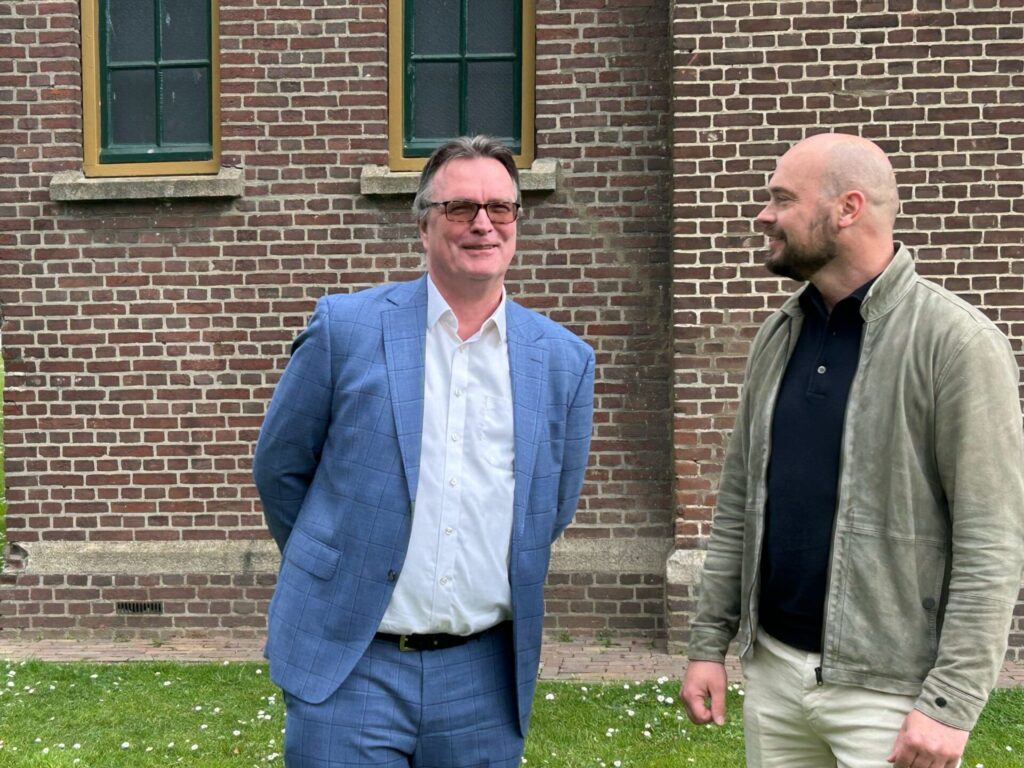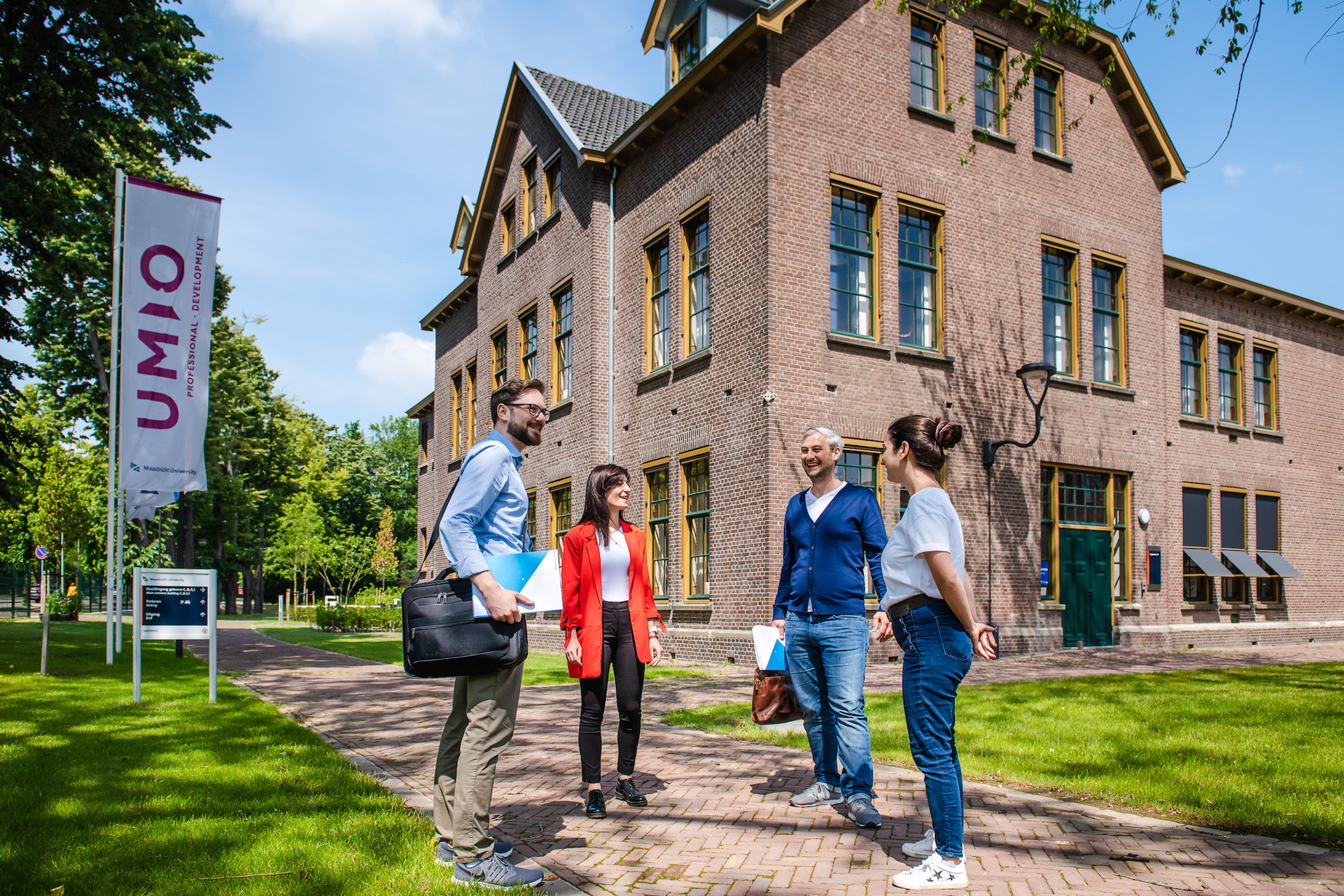Hospitals face complex challenges in the coming years that require new leadership and better collaboration. Ageing populations, rising healthcare costs, and a tight labour market make organising care increasingly difficult. At the same time, hospitals are facing increasingly complex healthcare demands. This requires not only medical expertise but also a thoughtful organisation of care in which departments and disciplines work seamlessly together. UMIO, Radboud Management Academy, Radboudumc, and MUMC+ have joined forces in the training program ‘Building Future-Proof Healthcare’ to address these challenges by developing (emerging) leadership talent and equipping them with tools to realise changes within hospitals.
According to Boris Blumberg, Executive Director of UMIO, hospitals face two urgent problems: finding and retaining suitable staff, and controlling rising healthcare costs due to factors like ageing. “The tight labour market makes it increasingly difficult to find enough qualified healthcare personnel, while the pressure to deliver affordable care continues to grow,” he explains. This calls for leaders who look beyond their own departments and can oversee the hospital as a cohesive whole.
Jesper Hanssen, organisational designer and developer affiliated with Radboud Management Academy, also emphasises that the complexity of healthcare demands is increasing. “Patients often suffer from multiple conditions simultaneously. Integrated care that connects different disciplines is needed for this,” he says. “Yet many hospitals still operate as silos, which can lead to inefficiencies and frustrations among healthcare workers — and a less optimal experience for patients.”

Building Future-Proof Healthcare
The training program ‘Building Future-Proof Healthcare,’ in which Boris and Jesper are closely involved as program managers and instructors, therefore offers participants not only insight into business aspects such as strategy, HR, and technology but also focuses heavily on change management and the social aspect of organisations. Boris: “Change within hospitals does not happen automatically. Social systems can be difficult to change. That’s why participants learn how to connect different perspectives and jointly arrive at supported solutions.”
Collaboration: More Than a Given
Collaboration is crucial, Boris and Jesper stress. However, that’s easier said than done, Jesper knows. “When your organisation is organised in silos, people behave accordingly. It’s not always easy or obvious to look beyond disciplines, while that is exactly what is necessary for integrated patient care.” The program, therefore, pays attention not only to designing clear goals and processes but also to change management: how do you motivate people to collaborate, how do you bridge fear and resistance?
Jesper: “We teach participants how to help teams let go of old structures and embrace new forms of collaboration. That starts with creating a common ambition and building communities around shared goals.” This requires insight into social dynamics and concrete intervention strategies to make changes successful.
Technological Innovation and Leadership
To keep hospital organisations agile while organising medical care economically feasible and of high quality, a combination of technological innovation, good leadership, and collaboration is essential. Technology plays an important role, Boris thinks: “Through automation and smart use of AI, you can make processes more efficient. But you also have to ensure employees can adapt, for example, with retraining or new knowledge to maintain that technology.” According to him, the key lies in guiding people and encouraging their willingness to step out of their comfort zone.
Leadership also plays a crucial role. “A leader must foster understanding for common goals and help employees move in the same direction,” Boris explains. It is about creating a culture in which teams keep adapting to new circumstances.
Looking at Care beyond the Hospital
Economic sustainability also requires more collaboration, not just within hospitals but beyond the walls of individual hospitals. Jesper: “Now, each hospital tries to keep its own care pathways running, while it would be smarter to concentrate specialised care more and distribute routine care differently. That way, resources can be used more efficiently together and complex care can be sustainably financed. In the ideal scenario, we look beyond hospitals at all care: who handles which patient flows? That requires courage to step out of silos and reshape the healthcare landscape together.”
More Focus on Prevention
By organising care this way, more attention can also be given to prevention. This requires close and sustainable collaboration between hospitals and other parties in the care chain, such as general practitioners and regional cooperation networks. According to Boris, effective collaboration starts with trust and personal connection: “If you want to promote collaboration between, for example, cardiologists, you need to create conditions in which they get to know and trust each other. Without that trust, no one will refer patients or share expertise.” That is why the program also focuses on getting to know other specialists — so they can find each other and utilise each other’s expertise.
Prevention requires, according to Jesper, a joint investment across the entire chain: “It takes courage from stakeholders to invest in prevention because the benefits are often only seen later, sometimes by another party.” He advocates regional cooperation with a shared goal: reducing healthcare demand and making the joint success visible: “You have to organise the same incentives along the entire line, from prevention to outcome. That way, everyone benefits.”
Learning to Change Together
The most valuable competence, according to Boris and Jesper, is one that seems obvious but is the most challenging in practice: collaboration at all levels. By jointly examining what is needed, everyone improves. And by learning to change together, we build a healthcare system that remains agile, affordable, and human-centred — now and in the future, for all of us.
UMIO works closely with healthcare organisations to develop unique, tailor-made programs that help them move forward. Do you recognise similar challenges within your organisation? We warmly invite you to get in touch with Ingrid Voncken and explore together how we can support your organisation in sustainable change.


